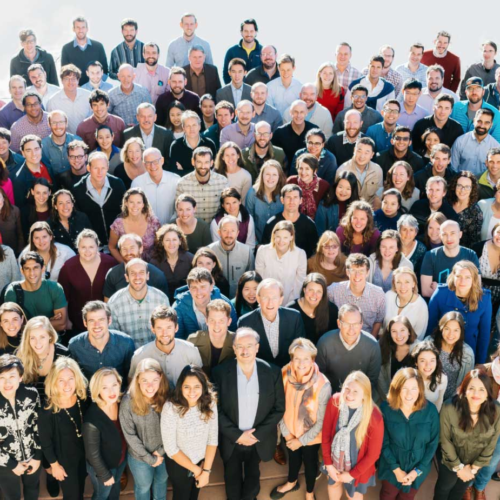
Rocky Mountain Institute Reveals 22 Actions for Cities Globally to Move Toward Climate-Neutrality and See Results Within a Year
Bonn, Germany, November 11, 2017—Today at COP23, Rocky Mountain Institute (RMI) released The Carbon-Free City Handbook with support from the Rockefeller Brothers Fund.
Cities are at the forefront of climate change risk and opportunity. More than 7,000 cities have announced a collective intention to address climate change, and nearly 600 cities—representing 444 million people—have made climate commitments to the Compact of Mayors. But these commitments will only get us so far and must be substantiated with on-the-ground solutions that enable cities to make rapid progress toward near-term decarbonization, and put them on a path to full climate-neutrality.
“Together, cities around the world can have a meaningful and substantial impact on one of the most pressing challenges—and opportunities—that we will face in our lifetimes and for generations to come,” said Gregor Robertson, mayor of the City of Vancouver.
The Carbon-Free City Handbook is a resource for city leaders around the world to take real and meaningful action toward their commitments with 22 ready-to-implement, no-regrets solutions that have proven success. Each recommendation draws off the work of more than 50 city leaders and sustainability directors and is a meaningful action that almost any city can pursue and apply locally, seeing results within a year. Ideas are nearly universally applicable for cities with a population of 100,000+ with compelling economics.
“Cities can get dragged down into endless planning and measurement. Yes, metrics matter. But, ambitious actions matter more,” said Jacob Corvidae, a manager at RMI and coauthor of the handbook. “This handbook helps cities move to action faster. Don’t wait for plans to be completed when you can get moving on meaningful actions now.”
Increasingly, cities are looking to work together to find the best solutions, and have the opportunity to harness the power of their peers to bring trusted solutions to their own locations. The handbook celebrates the women and men who have driven solutions in hopes that others can learn from them and remove as much guesswork as possible.
Along with letters from Rocky Mountain Institute Chief Executive Officer Jules Kortenhorst, Mayor of Vancouver Gregor Robertson and Deputy Lord Mayor of Sydney Councillor Jess Miller, the handbook also features case studies from diverse cities across six continents such as Frankfurt, Germany; Santa Monica, California; Dublin, Ireland; Wuhan, China; Rio de Janeiro, Brazil; Alappuzha, India; Vancouver, Canada and Barcelona, Spain.
Actions are organized into five chapters, covering key areas for impact:
- Buildings, which contribute an average of 48 percent to greenhouse gas (GHG) emissions in large cities
- Transportation and mobility, which account for an average of 36 percent of GHG emissions in large cities
- Electricity, which accounts for 25 percent of urban GHG emissions from all sectors
- Industry, which accounts for an average of 7 percent of GHG emissions in large cities, and often much more
- Biological resources, which can contribute to reduction in waste and account for 7 percent of GHG emissions on average in large cities while providing new carbon sink opportunities
The Carbon-Free City Handbook is available at info.rmi.org/carbonfreecities, where we also feature easy access to the 22 actions, associated case studies, and action-oriented resources for immediate download.
Hard copies of the handbook are available to COP23 attendees at the U.S. Climate Action Center.
***
Media contact:
Mark Grundy (on the ground in Bonn)
Rocky Mountain Institute
mgrundy@rmi.org
+1 646.643.9946
Nick Steel (NYC-based)
Rocky Mountain Institute
nsteel@rmi.org
+ 1 347.574.0887

About Rocky Mountain Institute
Rocky Mountain Institute (RMI)—an independent nonprofit founded in 1982—transforms global energy use to create a clean, prosperous, and secure low-carbon future. It engages businesses, communities, institutions, and entrepreneurs to accelerate the adoption of market-based solutions that cost-effectively shift from fossil fuels to efficiency and renewables. RMI has offices in Basalt and Boulder, Colorado; New York City; Washington, D.C.; and Beijing.